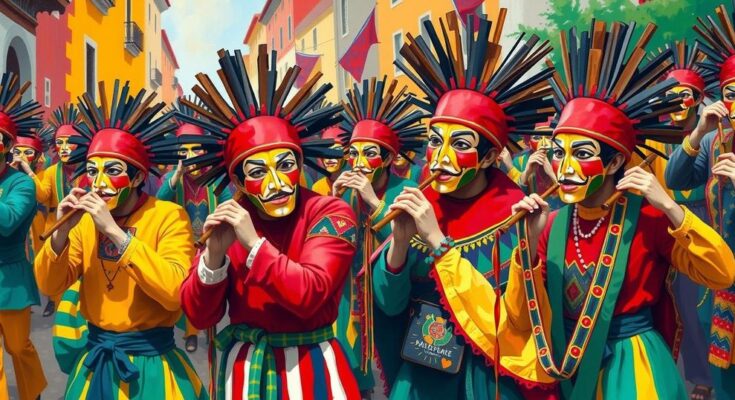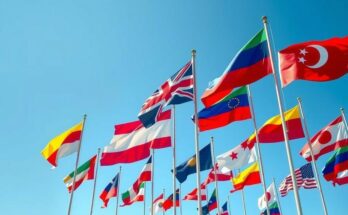Hundreds of Evo Morales’ supporters protested in Bolivia to push for his candidacy in the upcoming elections. The peaceful demonstration turned violent as clashes erupted with police amid tensions sparked by a court ruling barring Morales from running. The situation highlights ongoing political and economic crises in Bolivia.
Hundreds of supporters of Bolivia’s former president Evo Morales marched to the country’s top electoral court on Friday. They sought to advocate for his candidacy in the upcoming presidential elections scheduled for this year. However, the peaceful demonstration quickly escalated into clashes as police attempted to disperse the gathering. This incident reflects the ongoing political tensions in Bolivia rooted in socio-economic crises facing the nation today.
The conflict was sparked by a ruling from Bolivia’s Constitutional Court, which determined that Morales, the first Indigenous president who held office from 2006 until his resignation in 2019, cannot run in the elections. This decision has angered many, particularly as the country grapples with its most severe economic downturn in forty years. As the group arrived in La Paz, they chanted slogans demanding Morales’ return, indicating the strong emotional connection his supporters have with him.
Despite attempts to keep demonstrators at bay, police confronted protesters armed with rocks and fireworks. Injuries were reported among police officers and journalists caught in the fray, although no injuries were noted among the demonstrators, who faced tear gas and physical pushback from law enforcement. This raises questions about the nature of protest rights and governmental response in highly charged political environments.
The ruling from the court recently confirmed that Morales is not eligible to run again due to a law restricting presidents to two terms, which he has already exceeded. Morales, who resigned in 2019 amid riots and military pressure, had fled to exile. He eventually returned to Bolivia after his party’s candidate triumphed in the 2020 elections; now, that same political landscape has shifted.
Current President Luis Arce, who emerged from Morales’ Movement Toward Socialism party, has publicly stated that Morales’s political aspirations are curtailed by the constitution. However, the legitimacy of the court’s decisions remain controversial; many citizens and analysts believe that the judiciary is manipulated by political interests. Morales himself has previously benefited from judicial decisions that allowed him to attempt to prolong his presidency.
In a recent assembly, Morales encouraged his supporters to continue their push for his candidacy, underscoring his popularity among the rural populations who view him as a transformational figure. Meanwhile, Morales remains in hiding to avoid arrest on what he describes as politically motivated charges of human trafficking. This situation has further polarized his supporters and opponents in an already divided nation.
Minister Eduardo del Castillo publicly urged Morales to turn himself in, adding that authorities would take action if he was encountered in public. As tensions mount, the support for Morales persist, with demonstrators declaring the former president a symbol of their collective identity during the march, indicating that this political saga is far from over, and the people remain vocal about their demands.
The escalating protests in Bolivia illustrate the intense political struggle surrounding Evo Morales’ attempted candidacy for upcoming presidential elections. Despite the Constitutional Court blocking his participation due to term limits, his supporters remain fervent in their push for his return to leadership. With ongoing fears of arrest adding to the complexity of the situation, the atmosphere in Bolivia is charged, reflecting deep divisions within its society. This conflict emphasizes the significant challenges facing the country as it grapples with economic hardships and political unrest.
Original Source: apnews.com




